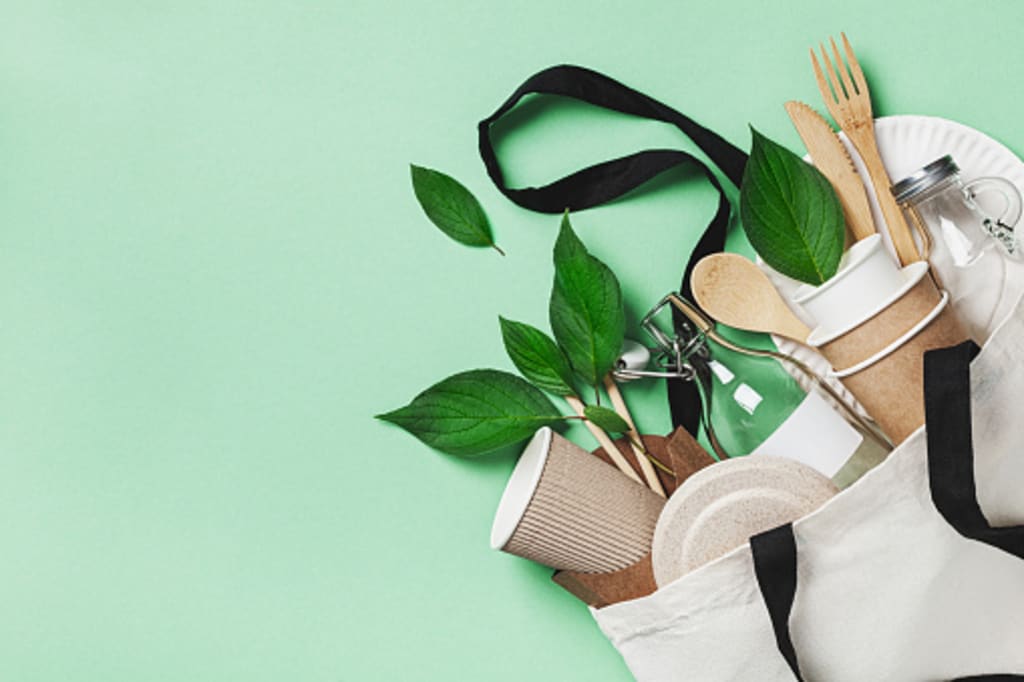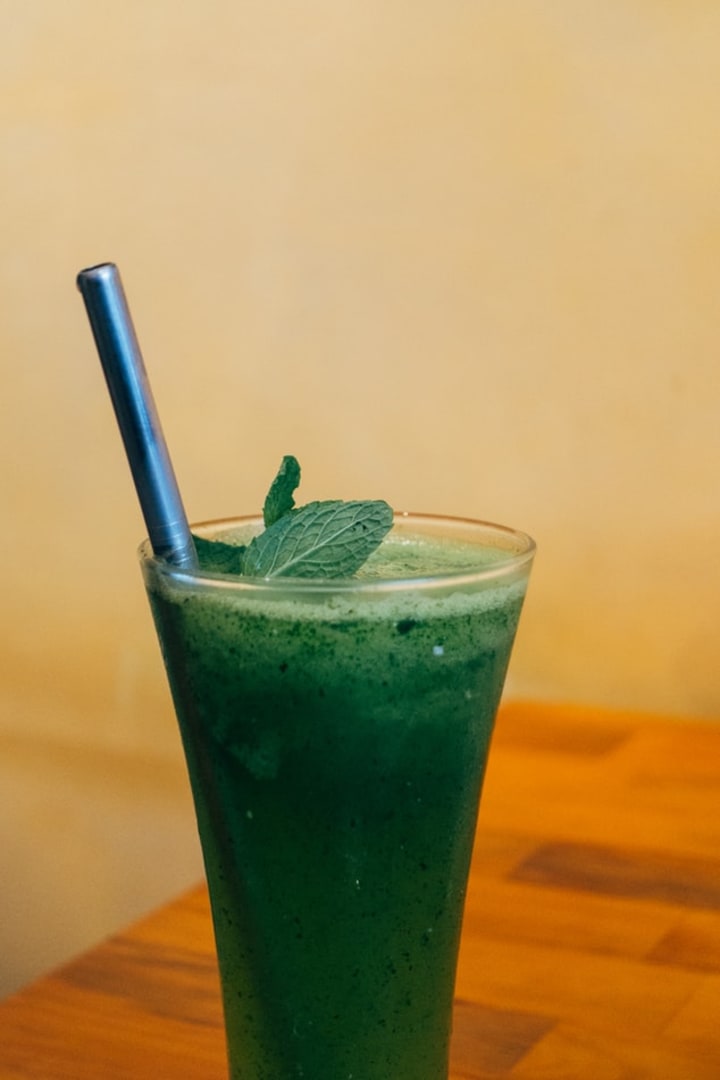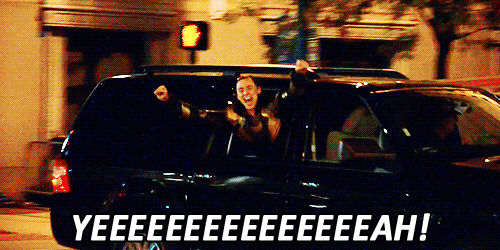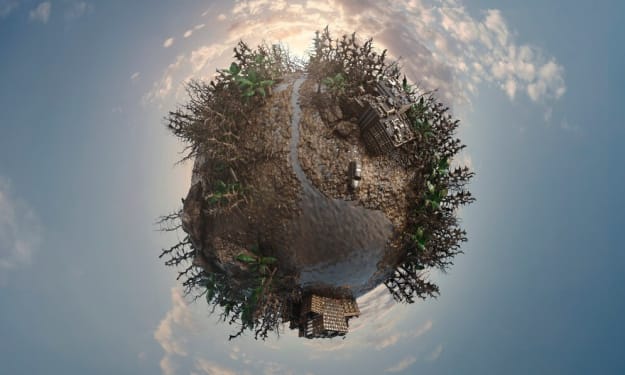Small Changes For A Big Impact: My Top 15 Tips For Being More Eco-Friendly
For anyone who wants to help the world in big ways, one small change at a time.

Sometimes, I'll be lying around, minding my own business, when all of a sudden, the dread of the global crisis and our burning planet hits me like a dump truck overflowing with fear and sadness. However, I've learned that the best way to confront a fear is to take action towards the solution, no matter how small.
As humans, we already have so many different tasks on our several to-do lists, that adding on even more to-dos can feel daunting. My recommended solution? Make small, consistent changes that, added up over time, have a massive impact.
Get ready to change the world and help make it a greener place with 15 of my favorite tips and tricks:
1. Keep reusable straws in your car/purse/bag so that even when you get that craving for last minute drive through (I'm a big Dunkin' fan), an easy eco choice is already there, waiting for you to grab it.

Sure, it's only one straw. But how many times will you say, 'It's only one straw'? Even the small changes add up over time, and reducing waste plus your plastic consumption is always a good choice.
2. Bring reusable bags with you for all of your shopping errands. They're not just for the grocery store!

I think we can all agree, the disposable bags they hand out at stores are not easy to carry, and there is always a 10% chance they're going to break. Additionally, I'm a big 'I can carry it all in one trip' kind of girl, which is not necessarily an easy way to be at only 5 foot 2.
I'm telling you, using your shoulders to carry longer-strapped bags instead of holding a bag per finger is a GAME changer.
3. If you do use disposable bags, ask for paper bags only, NOT plastic. Plastic never biodegrades, but paper does!

There is literally an ISLAND of plastic larger than the state of Texas floating in the middle of the Pacific Ocean called the Great Pacific Garbage Patch. Since plastic never fully biodegrades, it eventually breaks down into a gross substance called 'plastic soup' that remains in our oceans and water, making its way into all marine life.
Paper on the other hand? Easy to biodegrade, and you can also use it as a rustic wrapping paper alternative. So, remember, paper over plastic. Always.
4. There's okay plastic, and then there's terrible plastic. While of course the golden goal is to completely eliminate plastic, none of us are perfect, so it helps to know the difference between the two so that we can make an informed decision.

Unfortunately, while we mean well when we recycle, not everything we put in our recycling bins will actually end up being recycled. Normal local recycling plants typically don't have the equipment needed to recycle more complex plastics (plastics with a high number i.e. 5, 6, 7 inside the recyclable triangle symbol).
Aim for plastics with a low number inside the recyclable triangle symbol. The lower the number, the more likely it is to be recycled, and the better for the environment it will be.
5. Eat meatless when you can. Reducing your meat intake is one of the most effective ways to lower your carbon footprint. Saving the world one meal at a time, YES please!
I'm sure I'm the hundredth person to tell you to try eating meatless, but it's because it really is such an effective way to save the environment. About 14.5 % of greenhouse gas emissions come from the meat and dairy industry.
Meat consumption is one of the largest CO2 production culprits, so cutting back on meat, or at least red meat, is a great step to take towards reducing total greenhouse emissions.
6. When shopping, opt for items with the least amount of plastic packaging when possible. Remember, cardboard, tin, aluminum, paper, and low number plastics are your friends.

If your eco-friendly goal is to recycle more than you trash, keep in mind the packaging. Aim to buy more easily-recyclable materials, and products with the least amount of packaging when at stores. This small step helps make a BIG difference in reducing your overall household waste.
7. Save your jars! You can wash and repurpose them to contain whatever your heart desires in an easy to see option!

Personally, I'm a big pickle and pasta girl, so I accumulate pickle and pasta jars like it's my job. I shudder to think at all of the free container options I have tossed in the trash or recycling over the years because I simply didn't see its repurpose potential.
Now, I use these jars to store everything from more pasta (duh), fruits and veggies in the fridge, lipsticks, eyeliners, makeup brushes, glitter, ping pong balls, dice, candles, loose change, cat toys, and pens. The possibilities are truly endless.
8. Speaking of saving containers, from now on, whenever you receive anything in a container, look twice. It may be your new favorite piece of home decor!
Next time you're opening anything, ask yourself two questions: 1) Is this long-lasting material? and 2) Do I find this cute? If the answer to both questions is yes, congrats! You now have some new free and chic home decor.
9. Switch to bamboo toothbrushes and preferably tubeless toothpaste when and if you can. A great option for your teeth, the world, and a minimalistic decor.

SO many plastic toothbrushes and plastic toothpaste tubes end up in landfills every year. In the U.S. alone, 1 BILLION toothbrushes are thrown away annually.
Want to make a big difference for the world that your teeth will also love? Switch to biodegradable bamboo toothbrushes and toothpaste tablets in plastic-free containers that put less of a strain on our already overflowing landfills.
10. If you can, make the switch to reusable paper towels and napkins. I've done this, and our overall household waste has literally been cut in half. It's awesome.

I honestly never realized how much paper waste I threw out daily in terms of paper towels and napkins until I switched to reusable options. There are many different routes to take when reducing waste in this way, but my personal favorites are bamboo paper towels that are my go-to when cleaning, and cute cloth napkins that make me feel oh-so-fancy.
11. Add some air-purifying plants to your space! Clean air starts in your space, and I promise, your nose and lungs will thank you.

The best place to initiate change is in your home, so add some air-purifying plants! I guarantee you your lungs, space, potential allergies, immune system, and the environment will thank you!
Check out your local plant shop or my own personal favorite website, Bloomscape, for easy-to-care-for options.
12. If you have a period, consider trying a menstrual cup!
As someone who was formally Team Tampon, I will admit it takes some time to get used to a menstrual cup. You have to get a bit more intimate with yourself during your flow, but I promise it is worth it.
In addition to being a more comfortable option, it is also easier on your wallet, and so much easier in the long run. The cup can also be left in for a longer period of time than tampons, which is a personal favorite feature of mine.
13. Before you buy new, ask yourself, "Can I buy this thrifted or second-hand?" If the answer is yes, congrats! You are now also saving money. Look at you being a responsible and money-savvy consumer all at once.
Sure, you could browse some sites and pay full price for a new object containing no repurposed material OR you could buy second-hand! There's local yard sales, Facebook marketplace, antique quick-betting sites, or thrift stores, and finding that perfect thrifted piece really is SO rewarding. Additionally, second-hand items typically always come with first-rate deals.
Your jaw will drop at some of the deals you can score. Trust me on this, second-hand is the way to go.
14. When possible, buy in bulk.
If you know you are going to keep buying something, go ahead and buy it in bulk! Not only will you save money (isn't it nice how being eco friendly just kinda automatically saves you money too?) but over time, larger containers are a lower waste option compared to multiple smaller containers. Wins all around!
15. Put your apps on dark mode and delete extra data on your devices to conserve energy!
Sure it's a small change, but be real, how often are you on your devices? By switching to dark mode, your devices will use less energy since they don't have to work as hard to keep your screen as bright.
Remember, no matter how small the change, it will still matter. It’s all about doing what you can.
Making conscious changes to be more eco-friendly can seem like a big commitment, but with these small changes, you will be making a WORLD of a difference, one step at a time.
About the Creator
Sara Thomas
Mixed, optimistic, and depressed MA-based zillennial just out here trying to make you feel things.
We're all a little messed up, and that's okay. Let's be human together<3
UCLA '18 . Art History . Mythology
Book in Progress: Mess of a Human






Comments
There are no comments for this story
Be the first to respond and start the conversation.